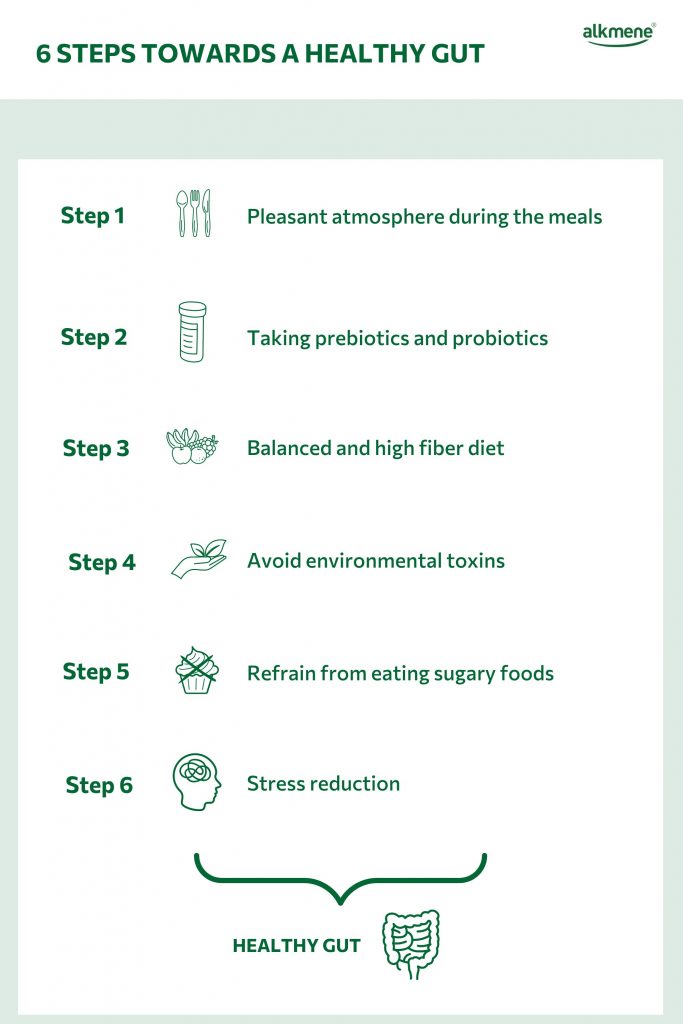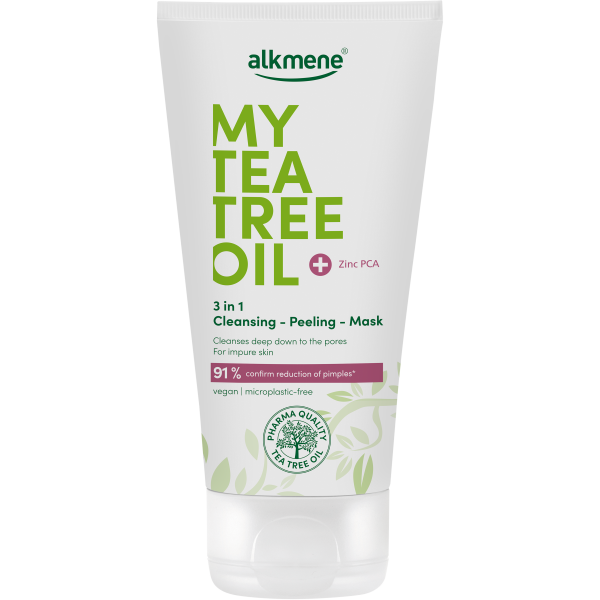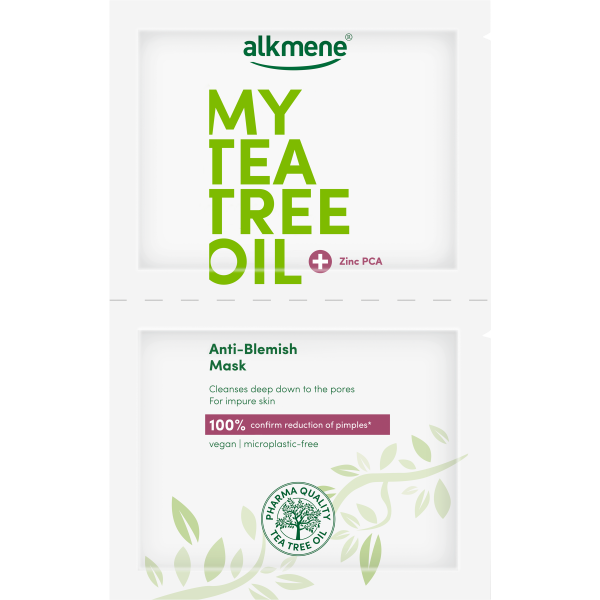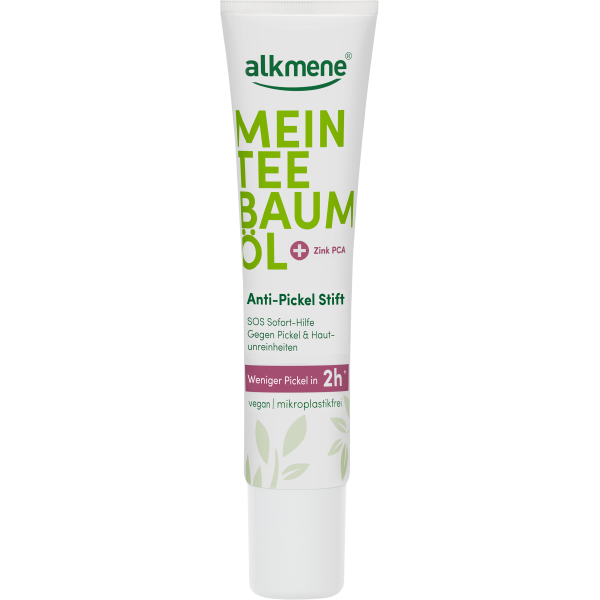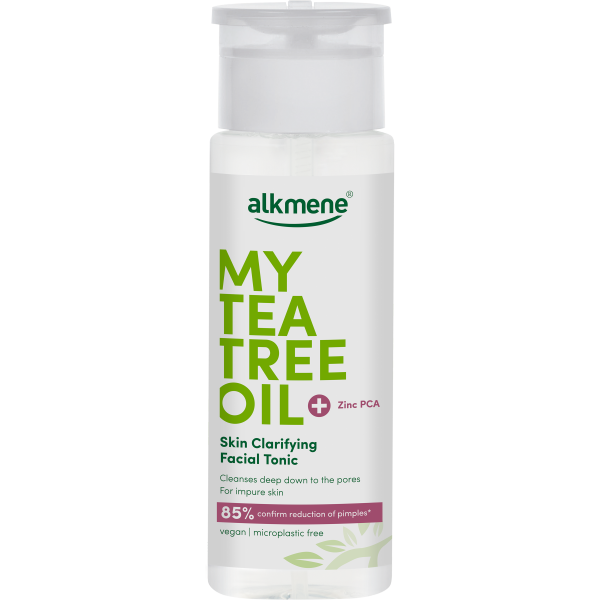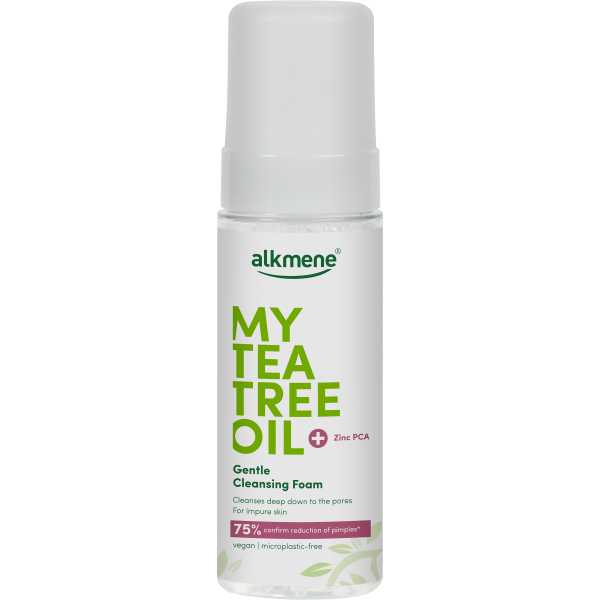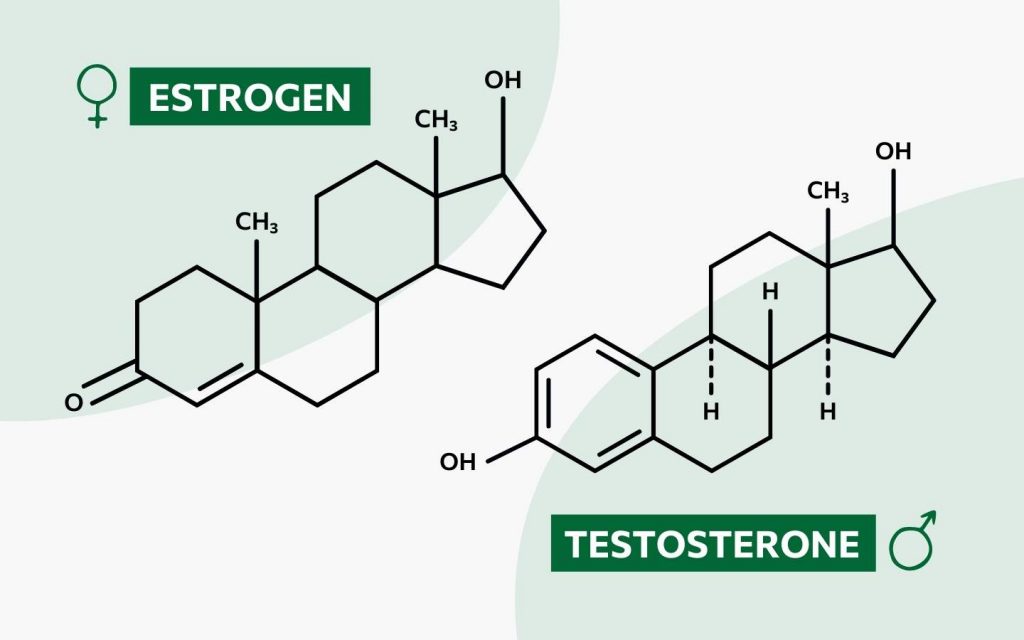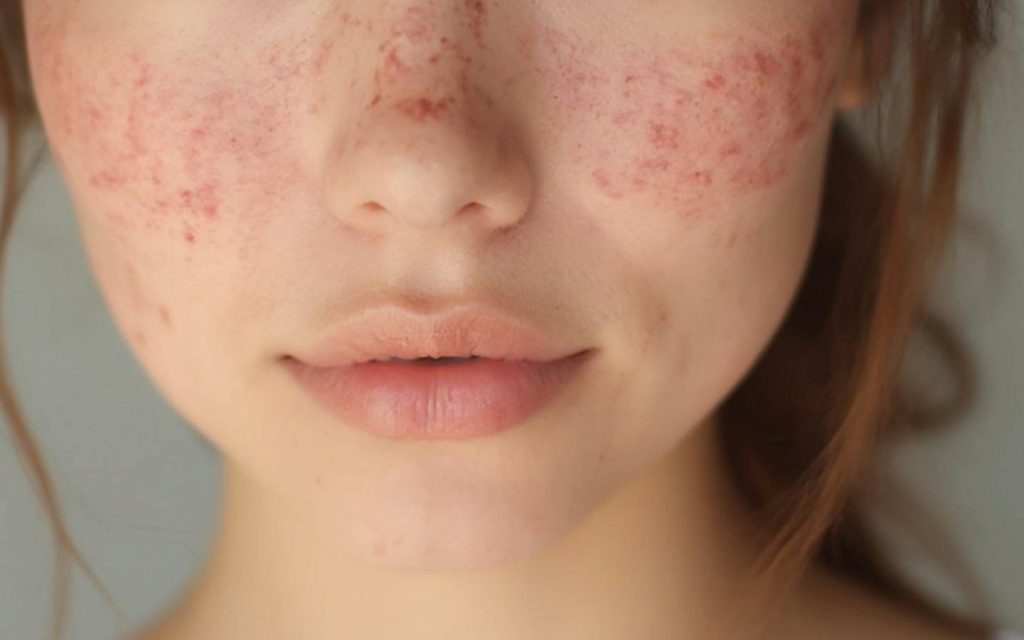

Since the skin is our largest organ, it is connected to so many other systems in our body and can therefore be influenced by many different factors. Especially the health of the gut is reflected on the skin. For example, a compromised gut can lead to oily skin and acne. What you can do about it, we reveal here.
A healthy gut
In the last decade, research has found that the health of our gut is fundamental to clear, radiant skin. This is because the cause of oily skin may lie in the intestines. In addition to its role as a digestive organ, it is also responsible for eliminating toxic substances. Moreover, in the gut, food is broken down into small components and then the nutrients it contains are passed into the blood.
If we do not consume enough vitamins or if the function of the gut is disturbed, this can be the cause of blemished and oily skin or even acne.
Reasons for impure skin due to the gut
The main function of the intestine is to absorb the nutrients from food that our body needs for growth, repair and normal function. When nutrients are not present or not properly absorbed for various reasons, the gut acts to provide these nutrients to vital organs first, such as the heart and brain. The skin is a little further down the list of priorities, and so blemished and oily skin can result from poor gut flora. The following factors represent possible causes of blemished skin due to the gut:
A poor diet can manifest itself in blemished and oily skin. Thus, it is important to consume enough zinc, omega-3 fatty acids, vitamin A and vitamin C. Zinc is important for skin repair and has antibacterial, barrier-protective, and anti-inflammatory effects, which are especially effective against acne. Omega-3 fatty acids improve the skin barrier and reduce skin inflammation. Vitamin A supports and controls creatine production, which keeps the skin elastic and soft. Vitamin C supports collagen production and helps fight oxidative stress and free radical damage.
In order to eliminate toxins that we are exposed to on a daily basis, our digestive system works together with the liver and kidneys. When our elimination system is not working properly and we are not able to eliminate toxins through these channels, the toxins try to get out through the skin. The substances that are now excreted through the skin due to an unhealthy gut can promote blemished and oily skin or even trigger acne.
The term dysbiosis refers to an imbalance of good and bad bacteria in the gut. This imbalance can negatively impact skin health in many ways. For example, the bad bacteria in our gut can lead to the accumulation of toxic metabolites that enter our bloodstream and make their way through our body. These metabolites can accumulate in the skin and destroy the integrity of the skin barrier, reduce the moisture content of the skin and reduce the production of healthy skin cells.
Dysbiosis can also activate the immune system, lead to inflammation and thus cause or intensify blemished skin and acne.
Another consequence of dysbiosis can be the so-called leaky gut syndrome. With a leaky gut, harmful bacteria, food proteins, toxins or parasites can enter the bloodstream. Here, too, there is a connection between the intestines and blemished skin.
Emotional stress and a non-nutritious diet alter the intestinal flora, which can lead to an overgrowth of toxins in the gut. This in turn leads to chronic inflammation and increased insulin resistance. These two indicators have an impact on the skin and can bring about acne.
The gut-brain axis is also involved in many skin diseases. Studies have shown that there is a frequent connection between anxiety disorders, depression, gastrointestinal complaints and skin diseases such as acne. Stress can cause substances such as certain amino acids to be released in the gut, whereupon the skin becomes more susceptible to inflammation and thus acne.
Product recommendations for blemished skin:
Tipps for a healthy gut
6
